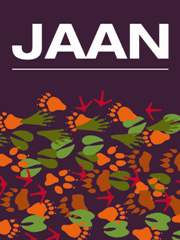Article contents
Comparison of performance and intestinal morphology of broilers using step-down supplementation with a mannan-rich fraction versus bacitracin methylene disalicylate
Published online by Cambridge University Press: 17 June 2014
Summary
Two experiments were conducted to compare effects of utilising step-down dosing of a mannan-rich fraction (MRF) of yeast cell wall or the antimicrobial growth promoter (AGP) bacitracin methylene disalicylate (BMD) when chicks were raised on built-up litter. Chicks were randomly assigned to one of three treatment groups (12 pen replicates; 50 birds per pen): basal diet (control) or basal diet plus MRF (Actigen™; Alltech Inc., Nicholasville, KY) or BMD (Alpharma Inc., Fort Lee, NJ). In experiment two, intestinal morphology and litter scores were determined on d 42. In experiment one, MRF and BMD increased BW gain at d 21 and d 42 compared with control (P ≤ 0.05) and d 42 BW was greater in BMD birds than controls (P ≤ 0.05). Adjusted FCRs were lower in MRF and BMD birds from d 0 to d 42 (P = 0.06). In experiment two, there was no effect of treatment on d 21 BW, but MRF and BMD improved adjusted FCR (P = 0.02) compared with control. By d 35, both MRF and BMD birds had greater BWs than controls (P = 0.04). At d 42, MRF-supplemented birds had greater BW than controls (P ≤ 0.05). D 35 and d 42 FCR improved with MRF or BMD compared with control (P ≤ 0.01). Litter conditions improved (P ≤ 0.05) when birds were fed diets with BMD and MRF compared with control-fed birds. Jejunal morphology, including villi height (P ≤ 0.05), villi height: crypt depth ratio (P ≤ 0.05), and goblet cell numbers (P ≤ 0.05) improved with MRF and BMD compared with control. Both MRF and BMD improved broiler performance, potentially related to the improvements observed in intestinal morphology. In conclusion, step-down supplementation with MRF may offer a potential alternative to AGP to improve performance in broilers raised in commercial settings.
Information
- Type
- Original Article
- Information
- Copyright
- Copyright © Cambridge University Press and Journal of Applied Animal Nutrition Ltd. 2014
References
- 2
- Cited by

